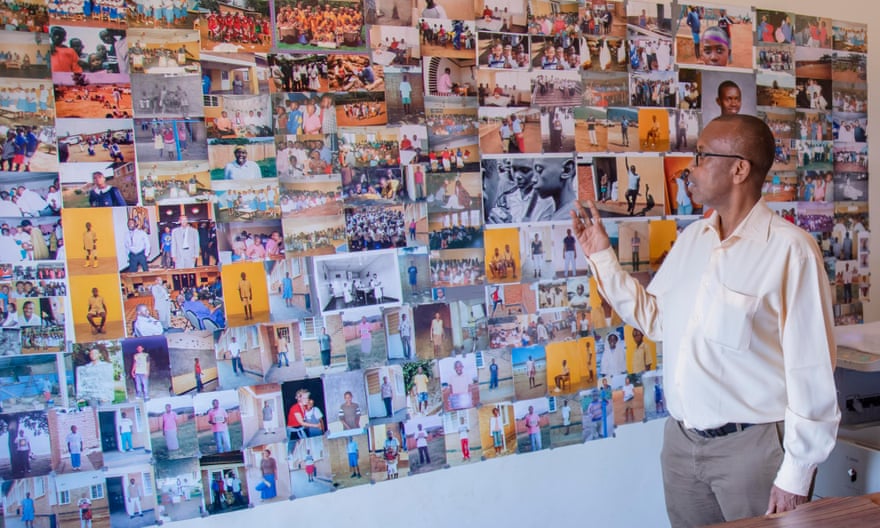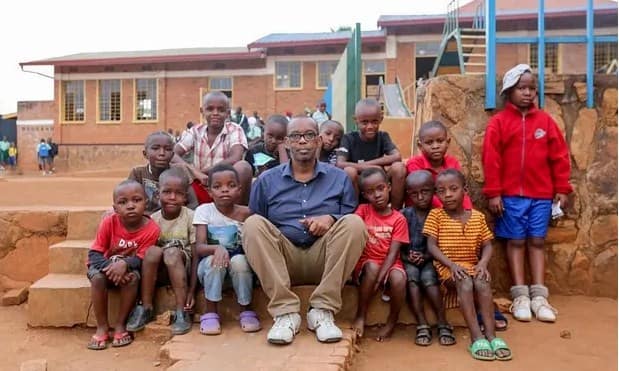Orphanage run by Damas Gisimba and his brother became refuge from militias during genocide that killed 800,000 Rwandans
In 1994, Gisimba and his brother were running an orphanage founded by their parents in Kigali, the Rwandan capital.
On 6 April, the plane carrying the Rwandan president, Juvénal Habyarimana, was shot down and his death was blamed on Tutsi rebels. Within hours, Kigali was surrounded by roadblocks and the slaughter of Tutsi families by Hutu forces began. The following day, people started arriving at the orphanage seeking shelter.
Over the next three months, Gisimba, who was of mixed Hutu-Tutsi ethnicity but had a Hutu ID card, and his brother, Jean-Francois, sheltered more than 400 children and adults who hid in the attic, the basement and in locked rooms.
“Damas is the reason why me and my family are alive today,” said Sonia Mugabo, a 33-year-old fashion designer, who was four when the genocide started. “In the 1994 genocide, we were living next to the orphanage. He welcomed our family – he saved our lives.”
Mugabo’s lawyer father, Pio, was a member of the opposition Liberal party and on a list of those to be murdered. After the genocide, in which an estimated 800,000 people were murdered, he served as social welfare minister in the transitional national government.
Gisimba hid the Mugabo family at great personal risk to himself and others in the orphanage. Had the militia found out they would have killed everyone.
“Gisimba is a hero and someone we’ll always remember,” said Mugabo. “He is someone I’m going to tell my child about.”

Gisimba kept people alive for months with the help of Red Cross parcels. He negotiated with the militia for the orphanage’s survival.
